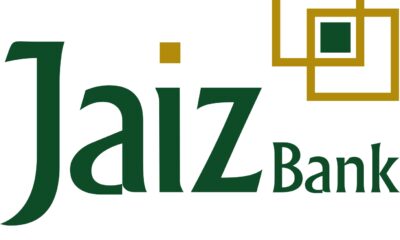Africa’s fastest growing financial institution according to the Financial Times, Moniepoint Inc has underscored the importance of a collaborative and holistic stakeholder approach in advancing the future of financial and economic inclusion in Nigeria.
In a recent high-level policy dialogue between the Nigerian government and private sector stakeholders held in Washington DC, Moniepoint Inc’s Group CEO and Co-Founder, Tosin Eniolorunda emphasized the importance of public-private collaborations in addressing trust issues that have slowed down the adoption of innovative fintech solutions for economic and financial inclusion.
“Moniepoint has long championed the importance of financial inclusion and financial happiness. Building trust with the public and government, improving business and consumer access to the financial system are critical issues that are aligned to our philosophy. As testament to our commitment, we recently launched a landmark report investigating Nigeria’s informal economy, highlighting opportunities to widen financial inclusion to historically underserved communities. The outputs from this strategic gathering will go a long way in bolstering Nigeria’s economy even as closer linkages are formed from public-private collaboration which will be a huge boost to the overall development and competitiveness of the larger financial services industry,“ Eniolorunda said.
The event, which brought together government officials, regulators, law enforcement agencies, and fintech industry leaders at George Washington University, aimed to leverage innovative approaches to drive a sustainable and inclusive financial system in Nigeria.
Vice President Kashim Shettima, addressing the gathering via video conference, highlighted the urgent need for financial innovation to drive Nigeria’s economic and financial inclusion agenda. This aligns with President Bola Ahmed Tinubu’s administration’s commitment to bringing over 30 million unbanked Nigerians into the formal financial sector as part of the Renewed Hope Agenda.
“We must develop a sustainable collaboration approach that will facilitate the adoption of inclusive payment to achieve our objective of economic and financial inclusion,” Vice President Shettima stated.
The dialogue focused on addressing critical challenges in Nigeria’s fintech ecosystem, including regulatory oversight, security concerns, and trust issues that have hindered the widespread adoption of innovative financial solutions. Participants explored strategies to enhance interagency collaboration and strengthen the overall effectiveness of the financial services sector.
Philip Ikeazor, Deputy Governor of the Central Bank of Nigeria responsible for Financial System Stability, emphasized the need for ongoing collaboration among all stakeholders to meet the goals of the Aso Accord on Economic and Financial Inclusion.
Kashifu Inuwa Abdullahi, Director General of the National Information Technology Development Agency (NITDA), advocated for “a digital-first approach and the fusion of digital literacy with financial literacy to address trust issues affecting the inclusive payment ecosystem.”
Dr. Nurudeen Zauro, Technical Advisor to the President on Economic and Financial Inclusion, explained that the gathering aims to evolve into a mechanism providing relevant information to the Office of the Vice President, facilitating effective decision-making for economic and financial inclusion.
The event resulted in various recommendations covering rules, infrastructure, and coordination, with a focus on implementable actions and clear accountabilities. As discussions continue, Moniepoint remains dedicated to leveraging its expertise and technology to support the government’s financial inclusion goals and create a more financially inclusive society for all Nigerians.
Other notable speakers included Inspector General of Police Mr. Kayode Egbetokun, Executive Director of the Center for Curriculum Development and Learning (CCDL) at George Washington University Professor Pape Cisse, Assistant Vice President at Merrill Lynch Wealth Management Mr. Reginald Emordi, Regional Director for Africa at the Center for International Private Enterprise (CIPE) Mr. Lars Benson, and United States Congresswoman representing Florida’s 20th congressional district, The Honorable Sheila Cherfilus-McCormick, Prof Olayinka David-West from the Lagos Business School among others.


 Billionaire Watch3 weeks ago
Billionaire Watch3 weeks ago
 Startups4 weeks ago
Startups4 weeks ago
 News4 weeks ago
News4 weeks ago
 News4 weeks ago
News4 weeks ago
 Bitcoin4 weeks ago
Bitcoin4 weeks ago
 Naira4 weeks ago
Naira4 weeks ago
 Forex3 weeks ago
Forex3 weeks ago
 Treasury Bills4 weeks ago
Treasury Bills4 weeks ago






















